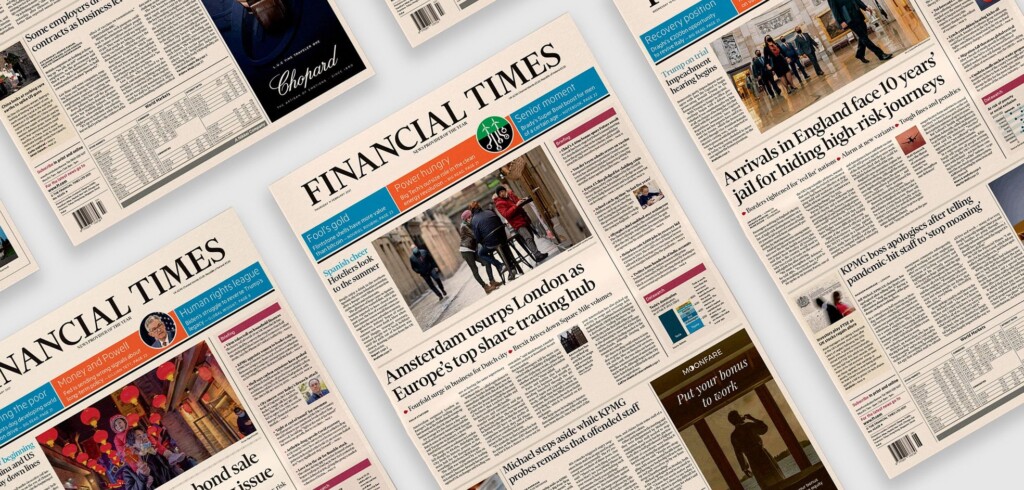

There are moments when individuals exhibit capabilities beyond the norm. Consider, for instance, the world record for the deadlift — 1,100 pounds. However, in extreme circumstances, human strength has been reputed to have surpassed even the 3,000-pound mark, or about a tonne and a half. Similarly, traders and investors have the potential to handle more than they expect.
However, it’s important to recognize that constantly pushing too hard in trading leads to exhaustion. Just as you need to understand your physical limits, Binomo traders need to address the challenge of too much financial information. In this article, let’s explore how to deal with information overload and prevent the flood of information available online.
The rise of financial news, real-time market data, and social media noise

In the contemporary trading landscape, the surge of data creates what people commonly term as information overload. Agnew and Szykman break down the root causes of this phenomenon into three key factors:
- Firstly, the sheer quantity of information available sweeps traders, which makes it challenging to keep afloat in this sea of data.
- Secondly, having an excessive number of choices can be just as detrimental as having too few, adding to the cognitive burden.
- Lastly, when options appear strikingly similar, distinguishing between them becomes a confusing task.
In this environment, financial news platforms like CNBC hold significance by offering insights into market trends and analyses. However, the constant demand to fill airtime results in an information overflow, much of which falls under the category of unavoidable noise. Daily updates on the Dow’s movements, Amazon’s earnings, or weekly unemployment claims provide snapshots of immediate events. But they might not offer the depth required for framing certain investment and trading decisions.
The term ‘breaking news’ mostly accompanies short-term data updates, and this is especially not helpful for traders and investors with longer-term perspectives. Financial media also delivers a constant stream of expert opinions, projecting future scenarios based on present occurrences. Although these experts provide historical context and insights into market behavior, their predictions remain speculative and lack a guarantee of accuracy.
See why you need to filter what’s coming your way?
How much is too much?
Recently, many individuals have found themselves excessively educated and informed. However, this has led investors, who should ideally be focusing on building their portfolios for the long term, to become consumed with concerns about various events, economic indicators, and even minor details. Engaging in online discussions on platforms like Value Research, people earnestly analyze these events and attempt to link what they read in the business media to their investment decisions.
In a time when dubious information proliferates across fields, few areas are as vulnerable to its impact as investing, perhaps only rivaled by health. The perils of relying on questionable information for investment choices cannot be overstated.
Depending on the person, there are diverse aspects investors should consider dismissing. Foremost among these is media explanations for market ups and downs. Financial assets are often attributed to rising or falling due to various factors, yet such explanations usually lack substance. Headlines might proclaim that “stocks fall on economic concerns,” but in reality, acknowledging the inherent randomness of these movements is more accurate.
But what actually counts as “too much” is more of a feeling. It’s a threshold you should be setting for yourself.
The pitfalls of information overload
To put it in simple words, here is what you’ll end up with unless you take the informational burden under control:
- Impulsive actions
- Lack of context
- Loss of focus
- Analysis paralysis
- Stress and anxiety
To give it a bit more thought, there are legitimate explanations. Behavioral researchers have revealed a striking aspect of human psychology — people assign more weight to negative news compared to positive news. This cognitive bias towards focusing on what’s going wrong is deeply ingrained in everyone. From an evolutionary standpoint, it’s indeed beneficial to be more attuned to a potential threat, such as an approaching bear. However, in investing, it becomes counterproductive.
Moreover, it’s important to recognize that negative news might not be as dire as it’s portrayed in the media. The media capitalizes on negative news to capture and hold attention. To do this, they can magnify the severity of situations for their own financial gain.

Psychological techniques to filter information

Managing information overload is about understanding when and how to use the right strategies. The following five principles provide valuable direction for maintaining mental clarity during a busy workday filled with data.
Reactive and proactive filtering
Reactive filtering is a TMI approach, so to speak. TMI serves as a mental signal to disregard irrelevant or overwhelming data. In other words, you’re instructing your brain not to absorb the excessive information you’ve just encountered.
Proactive filtering, or the preparation approach, is more preemptive. Rather than waiting for the point of information overload, you equip your mind in advance to dismiss non-essential information. For instance, notifications from your social media platforms can be a source of distraction. By deciding to ignore them beforehand or by disabling notifications, you establish a firm boundary.
Creating mental space
Your brain functions like a complex network, and making connections between ideas can expand its capacity to handle information. By linking concepts, your brain pairs them and gains the ability to process more data. However, during periods of intense focus, the brain operates in a collection mode, accumulating information without forging connections.
This is where ‘unfocus’ times come into play. Introducing moments of unfocus into your day activates your brain’s connection circuits. These intervals of mental relaxation enable your brain to consolidate information, enhance creativity, and foster better insights.
Using spaced learning and deliberate distractions
Instead of working endlessly, consider integrating strategic breaks into your routine. These intervals serve as deliberate distractions that, you’d think counterintuitively, yield benefits.
This approach rapidly empties your short-term memory cup, making space for fresh insights and lightening the load of constant data influx. More importantly, it accelerates the process of cementing what you need to remember, i.e., crucial financial insights.
Practicing deliberate forgetting
Deliberate forgetting is intentionally setting aside or discarding information that is not pertinent to your investment or trading strategy. For instance, let’s say you’re interested in a pharmaceutical stock and come across multiple news articles discussing unrelated regulatory changes in a different industry. While these articles might be intriguing, they are not directly relevant to your investment strategy. So you forget about them.
What’s more, you can apply this method for information that no longer suits you. Markets are dynamic and subject to change. So, deliberate forgetting helps you shed outdated assumptions and strategies.
Prioritizing physical wellbeing
Engaging in practices like yoga can improve your life in multiple ways, affecting both your physical health and your cognitive wellbeing. Yoga’s holistic approach helps create a balance between your body and mind, giving your brain the energy it needs to work at its best. Likewise, regular exercise also helps manage your body’s energy levels, which in turn benefits how your brain functions.
Tools and technologies for effective filtering

Fortunately for overwhelmed traders, they can use tools and technologies that act as virtual assistants and help them filter the information onslaught. With a few gatekeepers in your arsenal, you will consume the most pertinent and impactful news that makes its way to the forefront. These mechanisms save time and also spare you the cognitive overload of sifting through an excess of information.
News aggregators
News aggregators bring together news pieces from diverse sources, sparing investors the need to visit multiple websites individually. This consolidation streamlines the information-gathering process and helps traders and investors save time.
What’s even cooler is that many news aggregators offer customization features that allow users to tailor their news feeds. This allows investors to focus on specific markets, industries, or asset classes that align with their interests and strategies. It’s the most straightforward way to cut through the noise and concentrate on what matters most.
Data visualization
Instead of grappling with raw numbers and textual reports, traders and investors can translate complex data sets into comprehensible charts, graphs, heat maps, and other visual elements. It simplifies the process of spotting patterns, trends, and outliers within the data. For those navigating diverse sectors and asset classes, data visualization also offers a way to simultaneously compare multiple investments.
Well, it might not be that simple to visualize data if you don’t have any expertise. But there is specialized software that takes little time to master and comes with pre-made templates.
Sentiment analysis
Financial information often contains qualitative aspects that numbers alone cannot convey. Sentiment analysis delves into textual data from news articles, social media, and financial reports to determine whether the tone is positive, negative, or neutral.
While it’s just a beneficial practice as is, it’s actually helpful for overcoming financial information overload. Among the countless news events happening daily, sentiment analysis tools pinpoint those that evoke heightened emotional responses. You don’t have to manually sift through every piece of data out there.
Conclusion
In summary, trading in financial markets can be overwhelming as various factors vie for attention simultaneously. This can lead to information overload, which negatively impacts trading performance. The good news is that effective solutions exist to tackle this challenge.
The first and foremost step is to approach it from a psychological standpoint. Above, you have good guidance on what exact strategies you can employ. Alternatively or in addition to the psychological aspect, relying on external tools for instant alerts and streamlined information can help you, too.
Another practical method to counter information overload is to concentrate on one trading asset at a time. Just go on Binomo, choose a single asset that aligns with your trading goals, and make it the centerpiece of your attention. This will simplify the data flow, allowing for more thorough analysis and thoughtful decisions.
Sources:
Why the modern world is bad for your brain, The Guardian
The importance of patience and the danger of information overload, Financial Times
Effects of information overload on financial markets, Federal Reserve Board
The ways your brain manages overload, and how to improve them, Harvard Business Review











